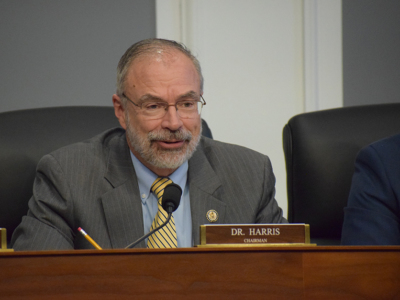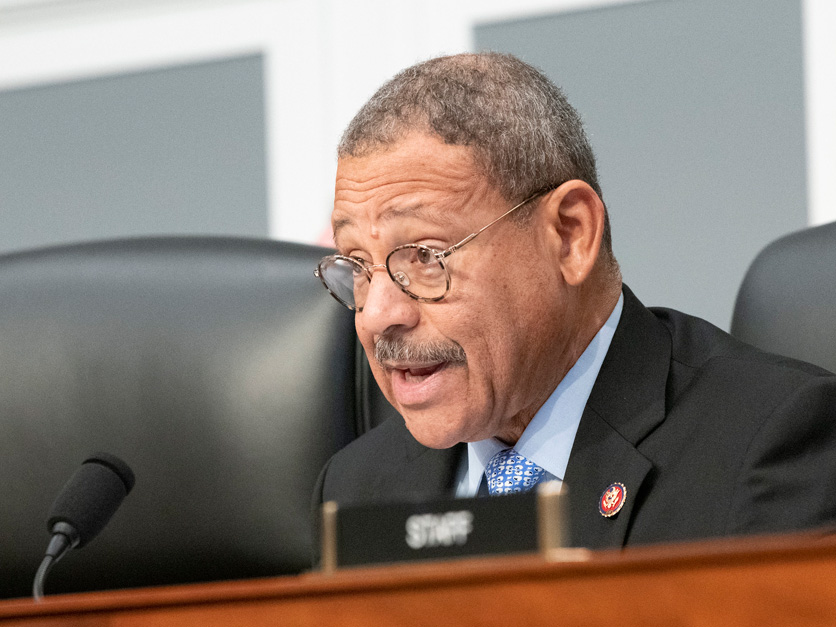Farmers going through difficult times financially would have fewer options for assistance, if House Republicans succeed in cutting off a new round of payments planned by USDA.
The House Appropriations Committee last week approved a spending bill that would claw back $2 billion of $3.1 billion allocated in the Inflation Reduction Act to aid “distressed borrowers.” USDA plans to use the funding for payments to farmers who have had to take "extraordinary measures," including tapping retirement savings, to make loan payments.
Rep. Andy Harris, R-Md., chairman of the Agriculture Appropriations Subcommittee, didn't address the debt relief specifically in a statement released after the bill cleared the committee, but said the legislation “reins in wasteful Washington spending and bureaucracy by redirecting billions in the partisan bills that contained Democrats’ priorities to help America’s producers and rural communities.”
So far, USDA says $1.1 billion in IRA funding has been used to aid about 20,000 distressed borrowers. Last month, the Farm Service Agency said it would start reviewing individual requests from direct loan borrowers “who missed a recent installment or are unable to make their next scheduled installment.
“All FSA borrowers should have received a letter detailing the process for seeking this type of assistance even before they become delinquent,” USDA said. “[B]orrowers who are within two months of their next installment may seek a cashflow analysis from FSA using a recent balance sheet and operating plan to determine their eligibility.”
In addition, FSA said borrowers will have “a new opportunity to receive assistance if they took certain extraordinary measures to avoid delinquency on their loans, such as taking on or refinancing more debt, selling property, or cashing out retirement or college savings accounts.”
 House Ag Appropriations Chair Andy Harris, R-Md.
House Ag Appropriations Chair Andy Harris, R-Md.
Harris said the bill rescinds money USDA doesn't need.
“The fact of the matter is there's money left over, and that’s what we rescind,” he said during the committee debate. USDA “is trying to find new, creative ways” to help borrowers make scheduled payments, Harris said, mentioning the “extraordinary measures” language.
Referring to producers who tapped their savings to make a payment, he said, “That’s exactly what American families do if they come up short on a mortgage and they fall on slightly hard times – they actually dip into savings to make those payments on the loan that they signed for.
“The USDA is simply creating a perverse incentive for current borrowers to become delinquent on their loans with the expectation USDA will step in to forgive the debt. … The bottom line is, if you take out a loan, whether it be a student loan or an FSA loan, there should be an expectation to pay it back.”
Rather than working on programs that Harris argued would "cause more borrowers to become delinquent," he said USDA should focus on "the underlying causes of farm debt," specifically citing inflation, rising interest rates, a more ambitious trade agenda and escalating input costs.
Despite the rhetoric, there’s little chance of the borrower relief going away, however, according to House Democrats and at least one longtime observer of the appropriations process, as the Senate will almost certainly honor the terms of the debt ceiling agreement reached between the GOP and President Joe Biden.
Democrats accused the Republicans last week of not abiding by that agreement.
Ferd Hoefner, principal of Farm, Food, Environment Policy Consulting, said he thinks the Senate “will write a bill that comports with the debt ceiling deal. And eventually, whatever the Senate passes will later become law, or we'll have a government shutdown, and God knows what happens.”
Don’t miss a beat! It’s easy to sign up for a FREE month of Agri-Pulse news! For the latest on what’s happening in Washington, D.C. and around the country in agriculture, just click here.
Hoefner called the entire effort unrealistic.
“Almost a third of the bill is paid for by clawbacks that are never going to happen,” he said. “There’s just no seriousness to what they're doing.”
Addressing the $2 billion rescission in borrower relief, Rep. Sanford Bishop, R-Ga., the ranking member of the Ag Appropriations subcommittee, asked Republicans, “Why would you want to put farmers and ranchers out of business?”
“How can you justify allowing hardworking farmers to go into foreclosure, right as we are coming out of the pandemic and just recovering from floods, wildfires, hurricanes, typhoons and the droughts?” Bishop added.
 Rep. Sanford Bishop, D-Ga.
Rep. Sanford Bishop, D-Ga.
Even if, as expected, the Senate decides not to rescind $2 billion in IRA money targeted to FSA borrowers, Rep. Rosa DeLauro, the Connecticut Democrat who serves as the ranking member of the House Appropriations Committee, warned Harris and his colleagues that the effort could come back to haunt them.
“Ask yourself – is it worth it to continue this charade?” she said at the markup. “Because Democrats are more than happy to tell each and every one of you how many of your constituents will suffer as a result of the inability to uphold the agreement that your own speaker negotiated just two weeks ago.”
For more news, go to www.Agri-Pulse.com.


